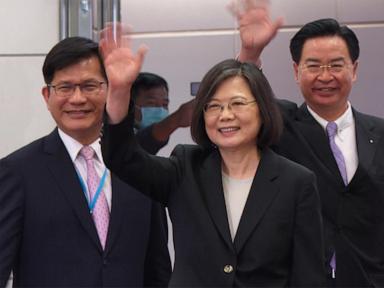
Taiwan’s Foreign Minister, Lin Chia-lung, recently visited the Philippines, leading a high-level delegation of investors, which has elicited a stern protest from China. This visit, which took place earlier this week, has heightened tensions between China and the Philippines, particularly given the ongoing disputes over territorial claims in the South China Sea.
Philippine officials confirmed that Lin arrived in the country to facilitate discussions with Taiwanese business executives focusing on key sectors like semiconductors. Two senior members of President Ferdinand Marcos Jr.‘s Cabinet, who spoke on condition of anonymity, indicated that Lin was in the Philippines “in his private capacity.” They noted that he did not engage in any formal meetings with political or security officials during his stay, which lasted two to three days.
The Philippines adheres to a strict “One China” policy, which does not recognize Taiwan as an independent state. China views Taiwan as a breakaway province and has consistently opposed any formal interactions between Taiwan and other nations, particularly those aligned with the United States. According to the Department of Foreign Affairs in Manila, the Philippines has “consistently upheld” this policy. Nevertheless, it maintains economic and cultural ties with Taiwan, emphasizing trade, investment, and tourism.
As tensions rose, the Chinese Ministry of Foreign Affairs issued a formal protest, condemning the Philippines for allowing Lin’s visit. The ministry argued that this action provided a platform for what it termed “Taiwan independence” separatists and accused the Philippines of violating its commitments regarding Taiwan-related issues. The ministry urged Manila to “stop pursuing the wrong course” and warned against “playing with fire” concerning China’s core interests.
In its statement, the Chinese government emphasized that there would be consequences for “trampling on China’s red line,” asserting that the Philippines would bear the repercussions of its actions. This reflects China’s firm stance on preserving its territorial integrity and sovereignty, particularly regarding Taiwan.
While the Philippine government has not officially acknowledged the details of Lin’s visit, the event underscores the delicate balance Manila seeks to maintain in its foreign relations, especially amid rising tensions in the region. As the geopolitical landscape evolves, the Philippines faces the challenge of navigating its relationships with both Taiwan and China, balancing economic interests with diplomatic sensitivities.






